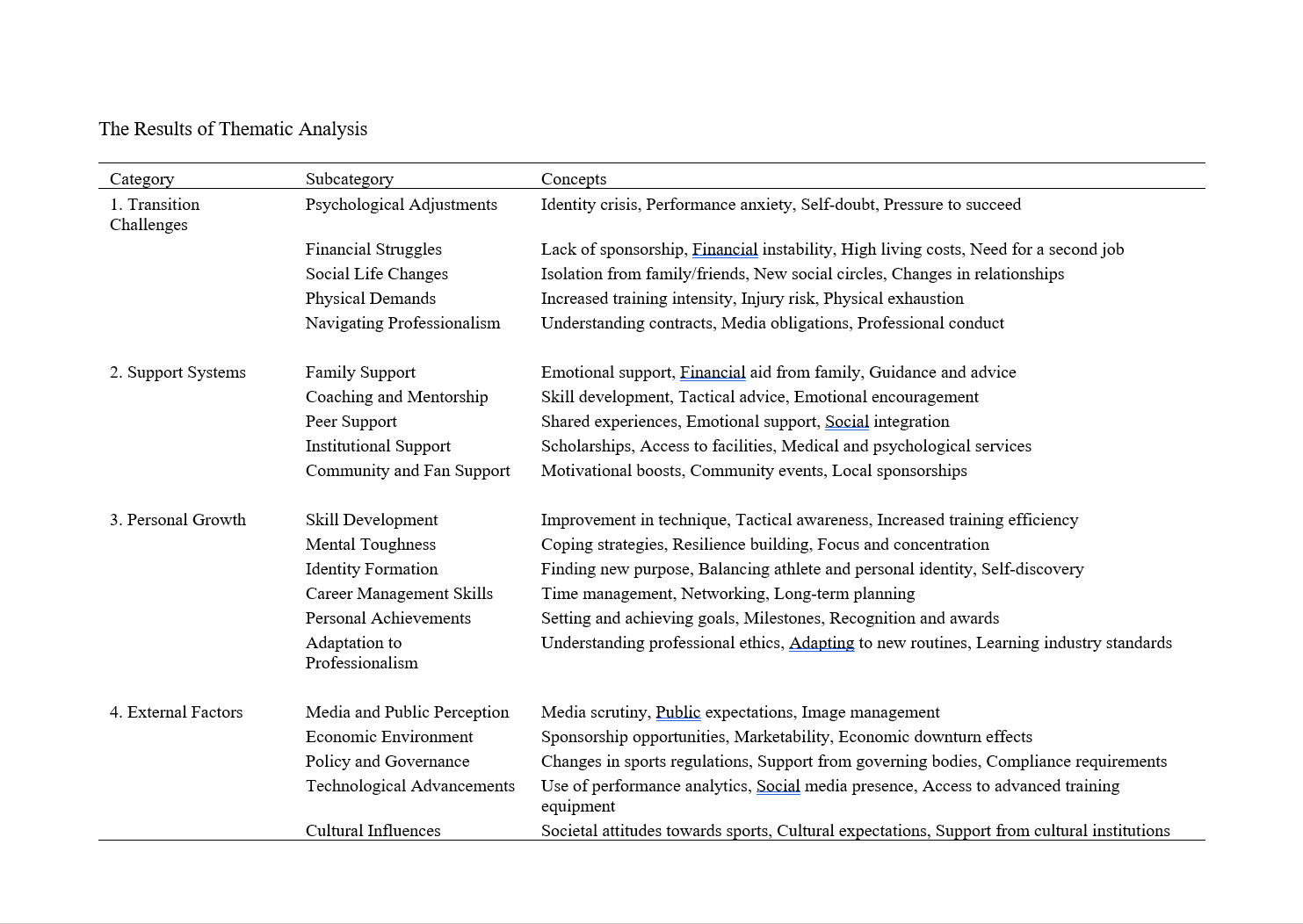Athlete Experiences of Transitioning from Amateur to Professional Sports: A Grounded Theory Approach
DOI:
https://doi.org/10.61838/kman.intjssh.7.3.9Keywords:
Athlete transition, professional sports, grounded theory, psychological adjustment, financial struggles, support systems, personal growth, external influencesAbstract
Objective: The current study aims to explore the experiences of athletes transitioning from amateur to professional sports.
Methods and Materials: A qualitative research design was employed, utilizing a grounded theory approach. Data were collected through semi-structured interviews with 22 athletes residing in Ontario, Canada, who had transitioned to professional sports within the past three years. Participants were selected using purposive sampling to ensure diverse representation across sports disciplines. Interviews were conducted in person or via video conferencing, lasting between 60 to 90 minutes, and were audio-recorded with consent. Data analysis involved open, axial, and selective coding to identify themes and develop a substantive theory.
Findings: The study identified four main themes: transition challenges, support systems, personal growth, and external influences. Athletes reported significant psychological adjustments, including identity crises and performance anxiety. Financial struggles due to lack of sponsorship and high living costs were prevalent. Social life changes, such as isolation from family and friends, and increased physical demands were notable challenges. Effective support systems involving family, coaches, peers, and institutions were crucial for navigating these challenges. The transition also facilitated personal growth in skill development, mental toughness, and career management. External factors, including media scrutiny and cultural influences, significantly impacted athletes' experiences.
Conclusion: The transition from amateur to professional sports involves multifaceted challenges that require comprehensive support systems. Psychological, financial, social, and physical adjustments are significant, and robust support from family, coaches, peers, and institutions is essential. Addressing these challenges through tailored interventions and support mechanisms can enhance athletes' well-being and success in professional sports.
Downloads

Downloads
Additional Files
Published
Issue
Section
License
Copyright (c) 2024 Yoko Wong , Haixin Qiu , Sarah Turner (Author)

This work is licensed under a Creative Commons Attribution-NonCommercial 4.0 International License.




